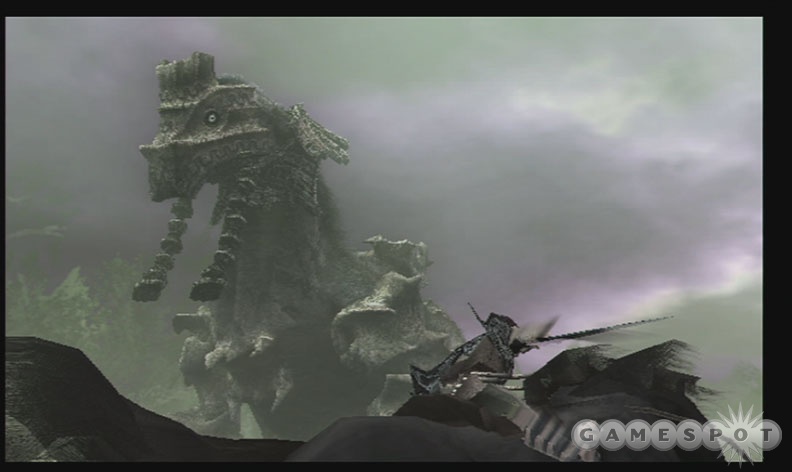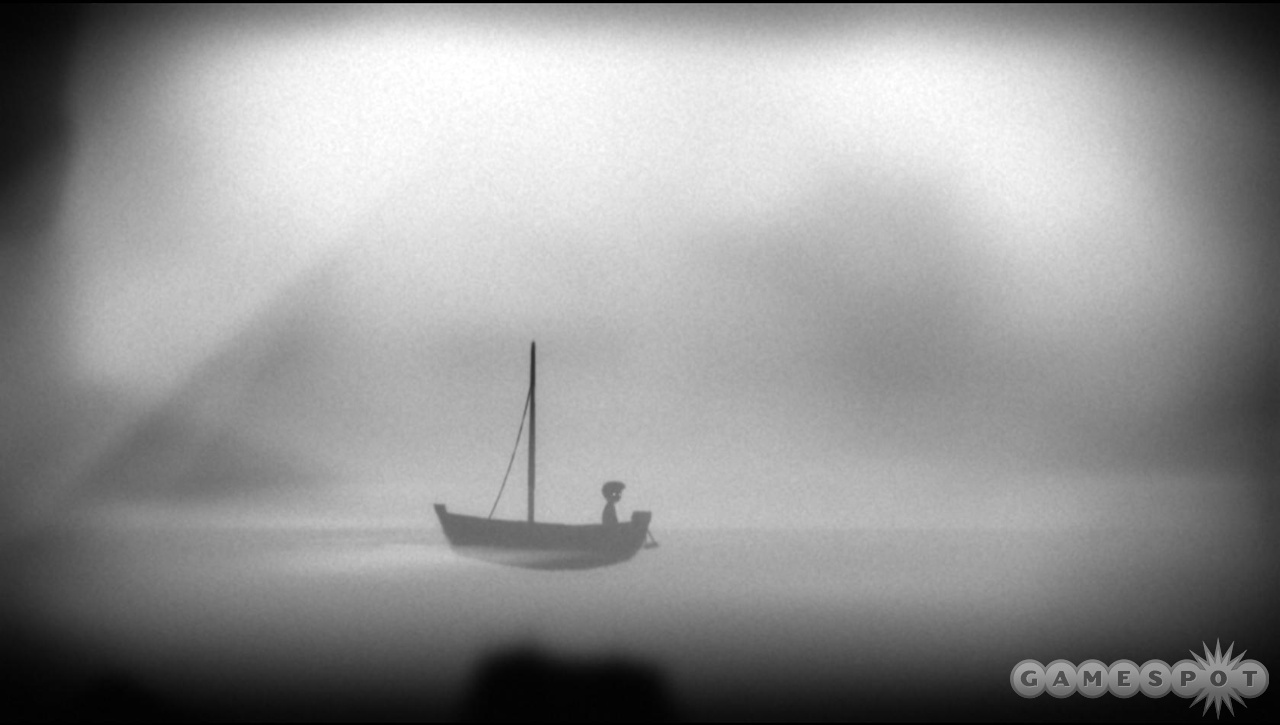The Allure of Ambiguity: On the Power of Uncertain Game Endings
Guest writer tomcat discusses why the endings that stay with him the most are often those that shy away from offering traditional resolutions.
I was planning to write about the ending of BioShock Infinite, but it's fair to say that the internet is already saturated with analyses of it. Still, thinking about the ending of Infinite led me to think about game endings more generally, and what kinds of game endings I enjoy the most. There is a definite type of ending that resonates with me more than any other: the open or unresolved ending. My favourite game endings are those that lack closure.
The vast majority of games are geared towards a kind of narrative finality that requires a very definite resolution. There's a structure of objective-completion-reward that necessitates closure: you have a task, you complete the task, and you get the reward. It's a closed process. Games with open endings, however, challenge this structure. An unresolved narrative contrasts with a completable, objective-based game. As a result, there's a dissonance inherent in games with open endings, a tension between the lack of closure on the one hand, and the traditional objective-completion-reward structure of video games on the other.
It's this dissonance that makes the open ending the most interesting type. Unresolved endings are often sadder, more challenging and more memorable than endings that tick all of the boxes and tie up all of the loose ends. They linger in the mind, asking questions and demanding analysis. They encourage deeper philosophical investigations into the roles and responsibilities of the player. I've had many more long discussions with friends over unresolved endings in games, books and films than I've had over neat, definite, happy ones.

One type of open or unresolved ending is the projected ending. In literature, a projected ending is one that takes place hypothetically after the end of the book. (A famous example would be in David Foster Wallace's novel Infinite Jest; the denouement takes place after the work has ended.)
One of my favourite examples of a projected ending in gaming comes from Final Fantasy VII. For various convoluted reasons I won't go into, the villain Sephiroth has summoned a meteor to scar the planet. The heroes have cast a spell called Holy to counteract Meteor. The player defeats Sephiroth at the game's climax, leaving Holy free to do its stuff. But there's a catch: in addition to destroying Meteor, Holy will judge humankind and, if it finds them to be a threat to the planet, will cleanse the planet of the human race; a twist in-keeping with the game's eco-focused ideologies.
The unknowable qualities of Final Fantasy VII's ending definitely contribute to its impact.
The final moments of FFVII consist of a brilliant white flash, a brief image of Aeris as she exists in the lifestream, and then… nothing. The ultimate judgment of Holy is left for the player to ponder. It's projected outside of the game's narrative: it happens after the ending. Did Holy destroy the human race? The epilogue, set 500 years later, shows us the prominent city of Midgar now overgrown and ruined. But even this fails to answer the significant question: what happened to the humans? Did they merely abandon the city, or is Midgar in ruins simply because there are no people left to inhabit the place? The quiet, post-credits laughter of children is a similar source of heated fan debate.
The most significant aspect of the ending is the way it upsets the traditional narrative expectancy for a grand heroic action that saves the world and wins the day. It changes the identity of the player from somebody who completes an objective and saves his heroes to somebody who may be complicit in the downfall of the human race. The world is, most definitely, saved, but at what cost? The unknowable qualities of FFVII's ending definitely contribute to its impact.
It's unfortunate, then, that Square Enix decided to answer the question of FFVII's ending by developing various sequels, making something that was once unresolved and highly original into something run-of-the-mill: the Holy spell worked, and it saved the day.
**
Team Ico's masterpiece Shadow of the Colossus offers a different kind of unresolved ending. The defining characteristic of SotC is its minimalism. The game refuses to satisfy the player with any detailed information, character biographies or helpful moralising. Who is the protagonist Wander? How did Mono die? What the hell is Dormin? The most striking thing we can say about the game's setting is that its an empty and forbidding landscape, one so old that it has forgotten even its own history, leaving the player free to apply whatever interpretation he or she deems best.

Indeed, as the game progresses it becomes apparent that the Colossi aren't violent "bad guys" in the usual sense of the term, but are, in fact, sad, ancient, moss-covered guardians standing watch over nothing but ruins. This forces the player to morally reconsider her notions of the standard objective-reward videogame structure. As the player slays more and more Colossi, the pervasive tone of the game changes from one of noble questing and honour (kill the Colossi to resurrect the maiden) to one of sadness and selfishness (lay waste to these giants to satisfy your own desires). It wouldn't be especially controversial to suggest that Wander actually fulfils the narrative archetype of villain (albeit under the guise of the bereaved adventurer). I like to think of Wander not as a naive but well-meaning warrior, but as a foreign invader, come to plunder the land's magic and to slay its inhabitants. You, then, as the player, are complicit in this evildoing. Lord Emon, who pursues Wander but arrives too late to stop him slaying the Colossi, is the game's real hero.
Shadow of the Colossus' ending is exceptional not in spite of its vagueness, but because of it.
The striking ending isn't unresolved as much as it's unexplained: the uncharacteristically frantic sequence of dramatic events and sudden plot twists doesn't explain itself in any coherent, rational way. Instead, it invites the player to extrapolate an explanation that best fits his or her interpretation of the game's events. Accordingly, the internet is rife with myriad interpretations of what is going on.
But as much as we can glean from the ending, there are many questions that remain unanswered. Is the horned boy revealed in the final moments Wander reborn, Wander punished? Is it even Ico, in a twist that would establish SotC as a prequel to the developer's earlier game? And why is the world of the game forbidden? Is it because the Colossi are dangerous, or because they are sacred? Or (my favourite interpretation) because the landscape of SotC is actually a prison for Dormin, and the Colossi his jailors? My interpretation: Wander's death is very definite, a penance for his murder of the Colossi, a denouement that establishes the game as a traditional revenge tragedy, with both Wander and Emon acting as revenger.
Alternate interpretations, however, remain valid: maybe Wander killed Mono himself, and his quest to resurrect her isn't one of selfishness, or even love, but one of guilt? My point being that Shadow of the Colossus' ending is exceptional not in spite of its vagueness, but because of it. This enables the player to conceive of an ending that best suits her own moral and aesthetic proclivities. I like to think of SotC as an anti-hero narrative, one which questions the usual role of the player as a doer of good. But the alternative reading, that Wander is a mistaken, misunderstood but ultimately noble man, is valid, too.
**
Playdead's 2010 puzzle platformer Limbo is even more narratively minimalist than Shadow of the Colossus. The brief synopsis describing a boy looking for his sister makes up the full extent of the game's narrative certainty; everything else one might say about the plot is pure speculation.

The player guides the boy through various landscapes until, a few hours later, the game abruptly ends. The final sequence consists of the boy being flung through what I assume is a pane of glass, before re-entering the forest in which the game began. There he encounters his sister, who, though facing away from him, looks up as if she senses his presence. The credits then roll and the game is over.
Limbo's ending willfully disregards the sense of player entitlement and the expectancy of reward.
I'm aware that Limbo's refusal to explain itself is the source of much frustration among certain players, who like to label the ending as anti-climactic, as if the player is due a set of clear answers. Limbo's ending willfully disregards this sense of player entitlement and the expectancy of reward. This is just one of the many ways that Limbo expresses a disinterest in the usual narrative structure of videogames: there's no dialogue, no tutorials, no characters as such, no villain and only one potentially endless and cyclic level. The ending is, in itself, the game's final puzzle, just as minimalist, brief and beautiful as any of the other obstacles the player encounters.
Thus any satisfaction the player derives from Limbo's ending is entirely dependent on his or her willingness to creatively engage with the limited material available. My particular reading is that the boy is himself dead, but since arriving in limbo he has forgotten his own death. The ending, with the boy breaching a pane of glass, serves to violently remind him of his death. Now, having accepted his fate and his place in limbo, he's able to see his sister (who's alive) tending his grave. The way in which she gently lifts her head implies that she can feel his presence in some way. Maybe he's a ghost? This ending suggests a kind of loneliness that's reflected in the game's overall aesthetic: the minimal use of music, the black-and-white palette, the absence of dialogue, etc.
**
Of course, there are many other highly successful types of game ending. Not every great ending has to be unresolved, or even unpredictable. Everybody knew how Halo: Reach was going to end. What intrigued players about Reach wasn't what was going to happen, but how it was going to be executed. Six's last stand was interesting not because it was unexpected, but because it was ingeniously well designed: moving despite its obviousness.
**
The future will doubtless see even more creative handling of endings, as developers are increasingly faced with a major dilemma: game plots and characters are being examined with more and more scrutiny, but developers want us to keep playing and playing and playing their games, so where does this leave us in terms of closure, resolution and narrative coherency?
Many thanks for reading. I'd love to know what kinds of game endings you enjoy the most, and what kinds disappoint you.
← Check here for more GameSpotting.
'Got a news tip or want to contact us directly? Email news@gamespot.com

Join the conversation